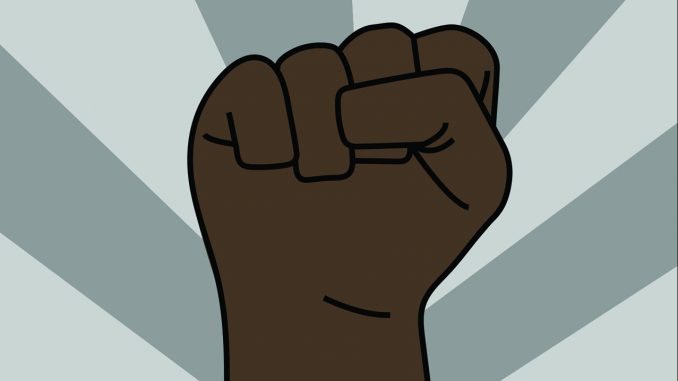
In 1926, Carter G. Woodson, a Black historian, created Negro History Week. It was expanded to Black History Month in 1976, formally recognized and celebrated in February annually from thereon. Woodson believed “the achievements of the Negro properly set forth will crown him as a factor in early human progress and a maker of modern civilization.”
But the unfortunate truth is that Black people, the makers of modern society, still face racism and injustice in America. Many things disguised as “changes” for Black Americans have merely been modified to function within a contemporary zeitgeist.
Colorblindness is an excuse used to disregard the hardships of Black people because it is uncomfortable for those who are privileged. It is the concept of ignoring race and racial differences in interactions, which invalidates the prejudice and discrimination that targets Blacks.
This is inherently racist. While overt expressions of racism might be condemned by the mainstream media, Black people face overt racism and microaggressions on a daily basis. A wicked truth of our society today is that mass incarceration has merely adapted the old systems — slavery and Jim Crow. Through these experiences, the system pervades with understated malevolence because it functions within a morally corrupt framework established at the beginning of our enslavement. The most important component, to keep us bound to the lowest rungs of the socioeconomic ladder, is, in fact, psychological slavery.
We have been educated by family, associates, enemies, institutions, the media and many other vehicles that propagate whiteness and tell us that we do not belong, no matter what we do.
Temple University, a bastion of education in a poor, Black community subject to gentrification, serves as a reminder to community residents of what cannot be attained. We internalize what society tells us — that we are both limited and will not amount to anything. This is slavery, the bondage of hopelessness and self-defeat.
In Woodson’s “The Mis-Education of the Negro,” he rightfully suggests that “real education means to inspire people to live more abundantly, to learn to begin with life as they find it and make it better.” This is the antithesis of the Black experience in relation to Whiteness. In post-civil rights America, we have been especially susceptible to a system that only teaches us conformity, subservience and self-worthlessness.
We cannot truly savor the freedom that white society basks in at our expense because the system works two-fold: to fuck our minds and make us internalize the ramifications of the mind-fucking.
Wretchedness defines the past, present and future of the Black race as long as we are kept in psychological bondage. We look everywhere externally for answers to our miserable condition, but introspection is a viable first step to true progress.
In his book “The Fire Next Time,” James Baldwin, a Black novelist, assures his nephew that “what [white people] believe, as well as what they do and cause you to endure, does not testify to your inferiority but to their inhumanity and fear.” As much as wretchedness is etched into our history, so is resilience. It is a superpower, strengthened by every villainous transgression we face. And the day that we start to deconstruct the mental scaffolding, perpetually in place to build images of white superiority, is the day the light of a brighter future shines upon us.
Oppression takes place in the mind first. Woodson exudes that “when you control a man’s thinking you do not have to worry about his actions. You do not have to tell him not to stand here or go yonder. He will find his ‘proper place’ and will stay in it.” Our duty to our race, to our ancestors and our progeny, to ourselves, is to destroy the programming. Only then will the foundation of almighty whiteness crumble in favor of the communion of humanity.



Be the first to comment